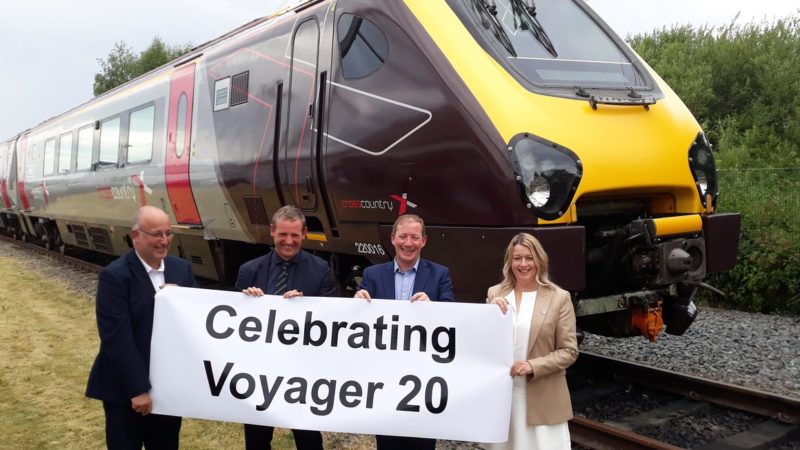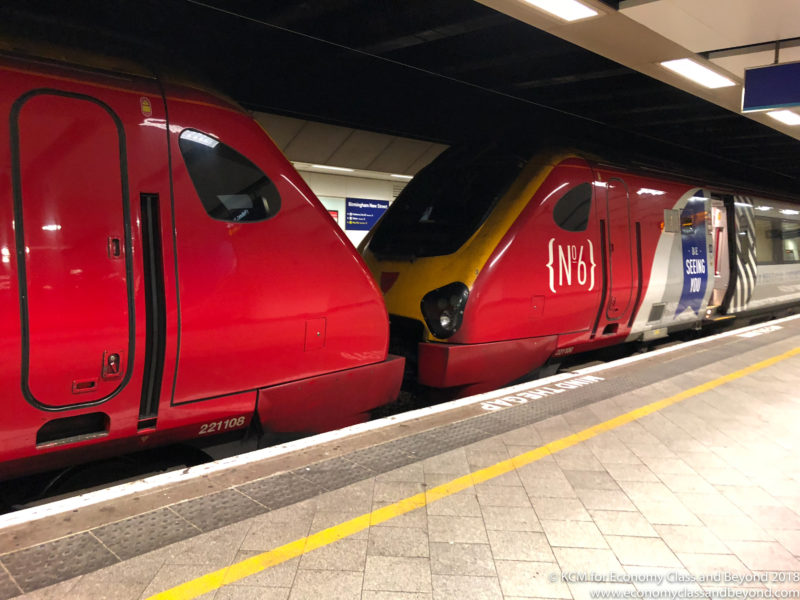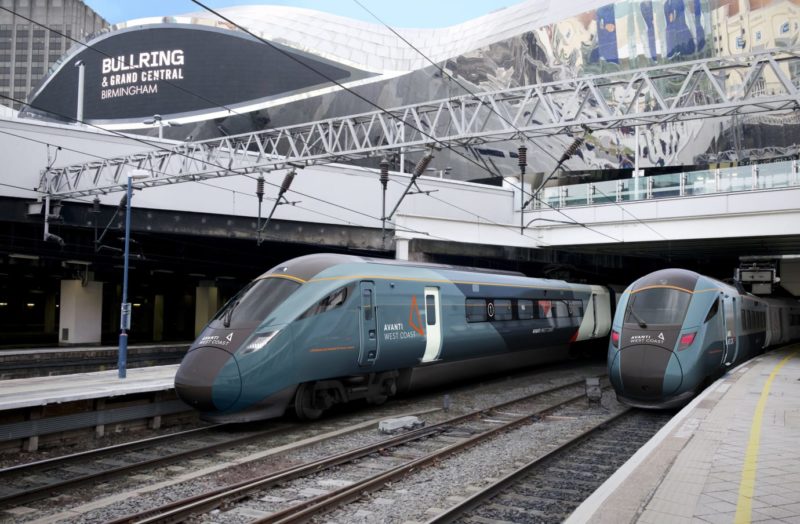The Voyager diesel train fleet turns 20 this year, with service. As these trains march on, could they have been so much more?
The Voyager (Class 220) and Super Voyager (Class 221) fleets were introduced in 2001 by Virgin CrossCountry and Virgin West Coast, as diesel multiple units to connect the networks that are unable to be served by electric trains.
They replaced locomotive-hauled trains that served the routes (inherited from British Rail Intercity days), as well as supplanting HST trains on some routes.
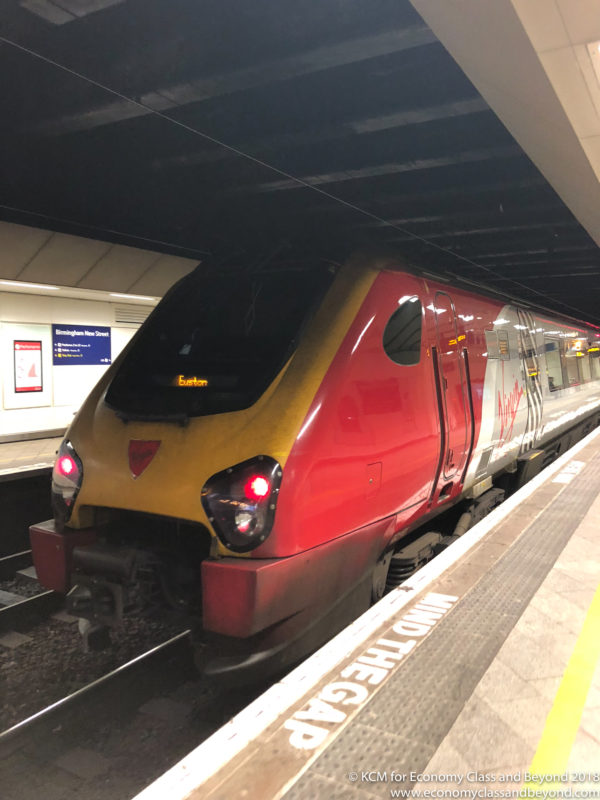
Super Voyager in Virgin Trains colours – Image, Economy Class and Beyond
They are designed to operate up to 200kph/125mph, and in some cases, tilt as well (in the case of some who have tilt-enabled units), and CrossCountry (whose units have tilt isolated).
The trains were manufactured by Bombardier, (acquired by Alstom in January 2021) and entered service in 2001.
The Voyager Fleet can be found across the length and breadth of Britain’s Inter-City network from Aberdeen to Penzance, London to Llandudno.
The allocations currently are:
- Cross Country: 34 four-car Voyagers (Class 220)
- Cross Country: 4 four-car Super Voyagers (Class 221)
- Cross Country: 20 five-car Super Voyagers (Class 221)
- Avanti West Coast: 20 five-car Super Voyagers (Class 221)
All 78 units are owned by Beacon Rail, and maintained by Alstom at its Central Rivers depot, with heavy component overhaul taking place at Alstom’s Crewe and Ilford facilities.
Innovation to continue – but missed opportunities
Even though they’re 20 years there seems to be plenty of room for innovation still, with such as hybrid diesel/battery operation and intelligent engine stop/start, being developed for the type.
However, there was a missed opportunity some years ago, when there was an opportunity to make them dual-mode, with an extra carriage to be added, which would allow it to powered from overhead electricity (as part of Project Thor). This was not taken up in the end.
This brings us to the next issue with the class- capacity.
Too short when they were ordered and never expanded
The Class 220 Voyager and Class 221 Super Voyager were ordered primarily as four-class configurations, with Super Voyagers mainly made up of five car configurations.
These replaced trains that were on average seven carriages long. In addition, space was consumed with luggage racks and large (if rather smelly) toilet units -leaving an ever reducing space for passenger seats.
Whilst it was argued that the improved timetable would justify the four/five-car sets, passenger demand soared – leaving Virgin and Arriva Cross Country with standing passengers on long haul routes – to the point where InterCity 125 trains returned to some CrossCountry routes.
And sadly, the units were never expanded… except for one member of the family.
Enter the Meridian
The last member of the Voyager family is the Class 222 Meridians. These entered service with East Midlands Trains (operated by Stagecoach) and Hull Trains and currently operate with East Midlands Railway (operated by Abellio).
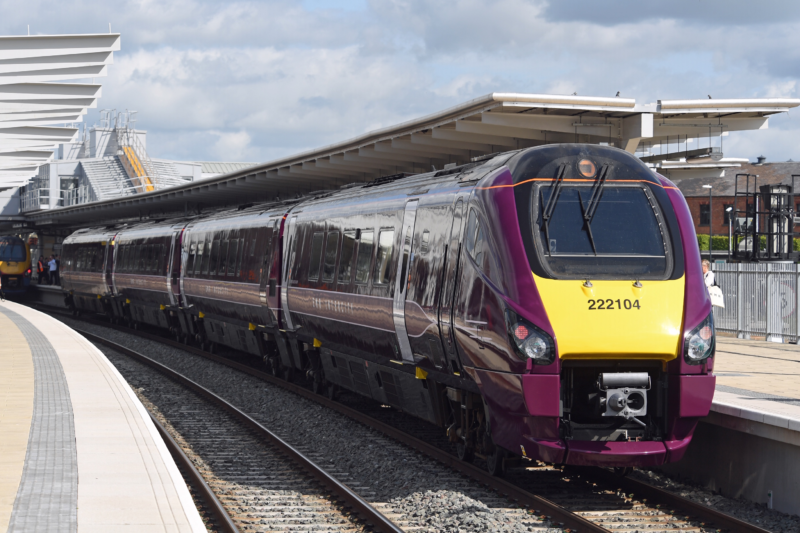
East Midlands Railway Class 222 – Image, Luton Airport/East Midlands Railway
Curiously, whilst they ordered some rather long nine-car sets, along with some four-car sets. The nine-car sets slowly were reduced to eight cars, then seven, with the four-car sets being transformed into five-car sets.
Currently, East Midlands Railway operates:
- 6 Seven Car Sets (Class 222/0)
- 17 Five Car Sets (Class 222/0)
- 4 Four Car sets (Class 222/1)
In Quotes
Peter Broadley, Managing Director, Services for Alstom UK & Ireland said:
“Twenty years of reliable, 200 km/hour operation across Britain is a very significant milestone. We are delighted to celebrate Voyager 20 with our friends from Beacon Rail, CrossCountry and Avanti West Coast and look forward to future innovations to achieve even greater sustainability.”
Rob Dee, Beacon Rail said
“The Voyager fleet is an integral part of Beacon’s portfolio, consisting of close to 2,000 items of rolling stock operating in 17 countries across Europe. Since taking ownership of the Voyagers in 2017 Beacon has worked closely with our customers Avanti West Coast and CrossCountry as well as Alstom to ensure the Voyagers offer a high level of safety, reliability, availability and comfort to the travelling public. Beacon has also commissioned industry colleagues to develop a hybrid battery solution for the fleet. The hybrid will significantly reduce emissions in built-up areas whilst maintaining Voyager’s high-speed, go-anywhere capability”.
Tom Joyner, Managing Director at CrossCountry said:
“The Voyager fleet has provided a sterling service for countless passengers over the past twenty years. There are some innovative projects in the pipeline, which will ensure the Voyagers continue to form a key part of our fleet and we are looking forward to working with colleagues from Alstom and Beacon Rail on these in the months ahead.”
Gus Dunster, Executive Director Operations & Safety, Avanti West Coast said:
“The Super Voyager has played a key role in the transformation of the West Coast Main Line – being integral to a high frequency timetable and helping to put Shrewsbury and Blackpool back on the map. The recent £8.3m investment in the fleet has given the trains a new lease of life and they will continue to serve our customers with great distinction.”
The next years
The Voyager fleet will see continued demand – however, the Meridian fleet is set to be released in the near future, when their new Class 810 “Arora” Fleet.
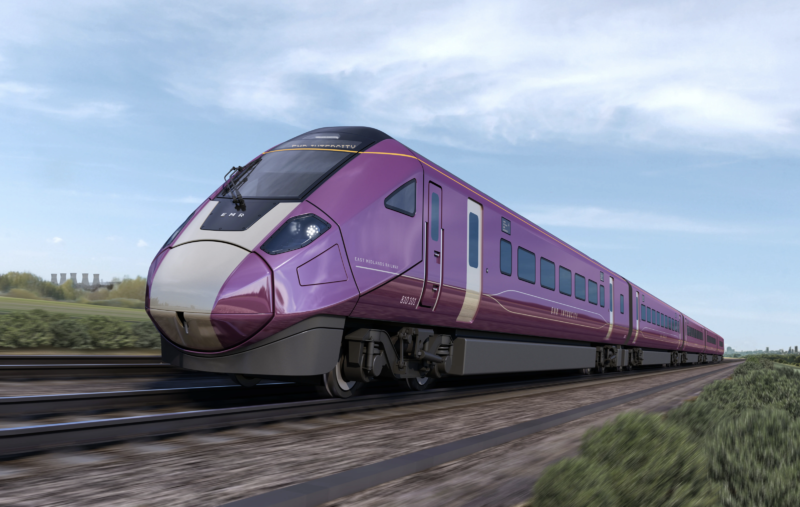
East Midlands Railway Class 810 “Aurora” – Image, East Midlands Railway
In theory, this will displace the Class 222 Meridian fleet. In addition, Avanti West Coast will be adding Class 805 trains too, to replace their Super Voyager fleet.
Where it will go in the age of Great British Railways – who knows. Hopefully, CrossCountry can benefit from these releases.
But one thing is for certain – we’ll be seeing a lot of the Voyagers to come for many years, as they connect Penzance to Aberdeen, from Bournthmoth to Manchester and the places in between.
Welcome to Economy Class and Beyond – Your no-nonsense guide to network news, honest reviews, in-depth coverage, unique research, as well as the humour and madness as I only know how to deliver.
Follow me on Twitter at @EconomyBeyond for the latest updates! You can follow me on Instagram too!
Also remember that we are part of the BoardingArea community, bringing you the latest frequent flyer news from around the world.
